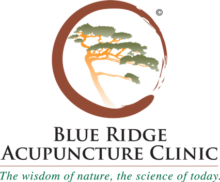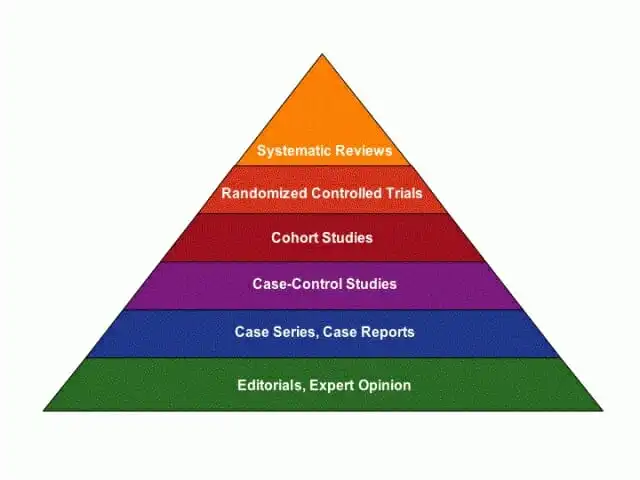The following conversation is redacted from a debate on an online forum from the Atlantic Magazine:
There are numerous studies pointing to the effectiveness of Acupuncture for a wide variety of conditions. The Mayo Clinic reported one such study done for Fibromylagia. The researchers concluded:
“This study paradigm allows for controlled and blinded clinical trials of acupuncture. We found that acupuncture significantly improved symptoms of fibromyalgia. Symptomatic improvement was not restricted to pain relief and was most significant for fatigue and anxiety.”
I personally have seen patients with terrible pain respond to Acupuncture when all other options have failed them.
Further, there are numerous studies done in China, Europe, Korea and Japan that have not been translated into English. Many of these studies are rigorous enough to meet western standards of research. Unfortunately, people are not made aware of these studies until they are translated.
We already KNOW Acupuncture works, we just have not been able to come up with an integrated theory of how it works, because we have not developed an energetic, physics based paradigm of the body yet.
Anyone who looks at the studies and contends Acupuncture does not work better than the placebo has not done their homework and is just ignorant, biased or worse. Yes, let me amend that statement: I know Acupuncture works. Millions of South East Asians know Acupuncture works as do thousands of Americans. Hundreds of thousands of physicians worldwide know Acupuncture works. But obviously there are many people who do not know Acupuncture works.
But actually even medical science does know Acupuncture works. For instance in the Ernt et al., Pain 2011, study you mentioned, there was a conclusion you left out:
“Unanimously positive conclusions from more than one high-quality systematic review existed only for neck pain”
So even from this study alone we can say, from a perspective of medical science, that Acupuncture works for neck pain. And if it works for neck pain, how can you say it does not work? Obviously it is beating the placebo (and the placebo itself, as we know, works).
Or how can you argue with a University of Maryland study for osteoarthritis of the knee published on Annals of Internal Medicine in 2004…their conclusion:
“Acupuncture seems to provide improvement in function and pain relief as an adjunctive therapy for osteoarthritis of the knee when compared with credible sham acupuncture and education control groups.”
There are many researchers working on the difficulties of devising methodologies for studying Acupuncture.
I don’t think an energetic paradigm needs to supplant a biological/biochemical paradigm, I would think of a better paradigm as integral. An integral paradigm would include the energetic realities of the body while also honoring the physiological. They both exist.
Are implying that rationality is the exclusive domain of “medical science.” I am sure there are plenty of rational conclusions you come to everyday that are warranted but have not been verified with the double blinded placebo controlled study.
The main problem in this whole debate is the tool of measurement: basic science. Acupuncture and Chinese Medicine will never truly be able to be measured via gold standard randomized controlled trials because we treat people individually based on their constitution. For example, two women with infertility will generally be treated completely differently. So clinically effective treatment (circular peg) cannot be shoved into a RCT (square hole). Whole systems research methods are developing but it will take many many years for this method of evaluation to be accepted by the medical/scientific field.
Believe me, it’s beyond frustrating to not be able to simply measure the effect of acupuncture as effectively as giving a pill. And as I said, there is a movement to create study design that takes into account individualized treatment while decreasing confounding variables. I am as skeptical as they come and appreciate and respect scientific evaluation hence my involvement in acupuncture research. There is a lot of bad research out there (so I’m not going to argue about specific studies)….often because the study design does not fit the therapy. I hope we are soon able to use methodology that produces sound results that can be trusted because after 10 years of practicing Chinese Med, I cannot deny the clinical effectiveness of acupuncture and want to prove it.
“There is as much evidence for the existence of Qi as there is for the existence of a soul or the validity of the concept of the 4 humours.”
And yet, some things are not yet measurable by what you call science. Different epistemologies existed in different times, this doesn’t make
different ways of knowing obsolete.
Just because something has not been deduced by the scientific method doesn’t mean it is not warranted knowledge. I believe you can presume certain things exist without the help of the scientific method, from direct experience, but I still understand people who consider the “science” as only way of ascertaining the “truth.”
I am not trying to convince you of anything, just helping you to understand what the Chinese mean when they use the word Qi. It is a qualitative phenomena.
I would hesitate before using words like “quakery” which often belie someone too quick to use a loaded catch-phrase, and unwilling to use sustained disciplined thought to criticize the history, methods and philosophy of science in the necessary mental attitude of skepticism, that most healthy, rational scientists espouse.
Have you used sustained disciplined thought to analyze the results of the research they have done over the years?
Do you think science has one method? I don’t think that is true. Maybe the better word is warranted knowledge. And Acupuncture is warranted. The criteria for evidence in “evidence based medicine” is often too narrow as we have said.
“There is as much evidence for the existance of Qi as there is for the existance of a soul or the validity of the concept of the 4 humours.”
And yet, some things are not yet measurable by what you call science. Different epistemologies existed in different times, this doesn’t make different ways of knowing obsolete.
Just because something has not been deduced by the scientific method doesn’t mean it is not warranted knowledge. I believe you can presume certain things exist without the help of the scientific method, from direct experience, but I still understand people who consider the “science” as only way of ascertaining the “truth.”
I am not trying to convince you of anything, just helping you to understand what the Chinese mean when they use the word Qi. It is a qualitative phenomena.
“Your talk of EM fields and energetics is just a clever way of masking meridians and qi in western sounding terms to make it more palatable for your western audience– there’s no basis in science for any of it.”
I am not sure why you think EM fields are not applicable to the concept of qi and Acupuncture.
Maybe it would helpful to think of Chinese medicine as qualitative and phenomenological rather than as “scientific”, a word you seem to use to mean quantifiable, just because qi is not measurable within your narrow frame of reference, doesn’t mean what the Chinese call Qi does not exist. The Chinese concept of Qi is a qualitative idea that is very obvious. It is an integral concept. It is a very practical idea.
In an acupuncture study, doing acupuncture once a week is often not enough, you cannot apply the methodology of a pharmacological study to an acupuncture study. I have been to China 8 times and worked with Chinese physicians in hospitals there and the doctors there know you need to do acupuncture typically 3 times a week over a sustained period of time to get lasting results. We know, through MRI research that there are specific biological correlates after only one Acupuncture treatment that are not explainable with sham Acupuncture or even superficial needling, but still, we are seeking lasting results.
In the same way that you wouldn’t set up pharmacological study and give the medicine once a week, Acupuncture trials often have a frequency issue. Further, most clinical trials on drugs just want to establish the physiological effect of the drug. For instance, researchers want to know that it controls blood pressure or reduces pain more than the placebo, they are not looking at whether the drug has a curative or lasting effect after the drug has been stopped. They don’t judge the efficacy of the drug only if the patient is cured.
Maybe pain studies for acupuncture need to increase the frequency to mimic drug use, give acupuncture every other day for 3 months. So frequency is an issue.
You didn’t address the research I mentioned because that study, clinically proving acupuncture was effective for osteoarthritic pain of the knee, did not reveal rational knowledge? If you can honestly look at that study, the largest ever of its kind, a phase 3 trial, and find some way to denounce it, then I would be curious to assess your reasoning.
You mentioned the Mayo Clinic’s study in fibromyalgia however, those doctors did only 6 treatments, with electro-stimulation and they found evidence of pain reduction beyond the placebo. The physiological changes associated with acupuncture have been established.
Just because electro-stimluation was added doesn’t mean it wasn’t acupuncture. Plus, they only did 6 treatments, which would be like giving a drug 6 times and expecting a chronic condition to be cured, it’s not going to happen.
So the systemic reviews you mention may be indications that the studies are not being designed correctly, often the doctors doing the treatment are not experts, and researchers are applying methods that are more useful for pharmacological studies…the results of acupuncture do largely depend on a host of factors.
As for your comment that I don’t understand the placebo, I have spent 15 years thinking about the implications of the placebo effect. Why would believing something is going to lower your blood pressure actually help lower it? It is because the mind can actually exert physiological changes in the body? Yes.
As for not knowing where to start about my comment on needing an integral approach to the human body that includes energetic models and biological models. The energetic model would include the effects of electromagnetic fields on the human organism. We know the hearts EM field is 1000x stronger than the brains and as emotions change, the EM field of the heart changes, and exerts a measurable effect on the brain….described by a physics term: entrainment. There are plenty of ways that the energetic model can interface with the biological model. You might find the work of the HeartMath Institute enlightening.

